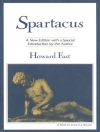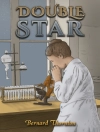In ‘The Laughing Mill, and Other Stories, ‘ Julian Hawthorne presents a collection of both whimsical and profound tales that navigate the intricate landscapes of human emotion and experience. With a narrative style that combines elegant prose with rich character development, Hawthorne’s stories reflect the literary influences of his time, particularly the blend of realism and romanticism. The titular story, alongside others, explores themes of identity, societal expectations, and the bittersweet nature of life, utilizing humor and pathos to engage the reader in a deep reflection of the human condition. Julian Hawthorne, son of the renowned Nathaniel Hawthorne, was profoundly shaped by his literary heritage and personal experiences. His background in literature, along with his travels and varied career paths—including journalism and historical writing—infused his storytelling with a unique sensibility. Striving to carve his own niche in the literary world, Hawthorne’s work captures a distinct voice, blending elements from his father’s legacy while also asserting his individuality. I highly recommend ‘The Laughing Mill, and Other Stories’ to readers seeking a thoughtful exploration of life’s complexities through engaging narratives. Each story invites contemplation and resonates with the universal struggles faced by individuals, making this collection a significant read for anyone interested in the evolution of American literature.
Mengenai Pengarang
Julian Hawthorne (1846–1934), the son of the acclaimed American novelist Nathaniel Hawthorne, carved out his own literary niche as a writer and journalist. Born in Boston, Massachusetts, he was educated both in the United States and abroad, due to his family’s travels in Europe. With a formidable literary heritage, Julian ventured into writing, contributing to the sphere with his unique style that often intersected with the themes of morality and human psyche his father was revered for. His body of work includes a variety of genres spanning from essays and biographies to novels and short stories. Among his writings, ‘The Laughing Mill, and Other Stories’ showcases his breadth of imagination and narrative talent. While Julian never quite escaped the looming shadow of his father’s legacy, he nevertheless made a significant mark in late 19th and early 20th-century literature. His storytelling often integrated supernatural elements with a keen observation of social issues, a blend that offered a nuanced and mystic layer to his tales. Though his work did not achieve the renown of his father’s, Julian Hawthorne remains an intriguing figure in American literature, a testament to the complexities of inheritance and individual artistic pursuit.












